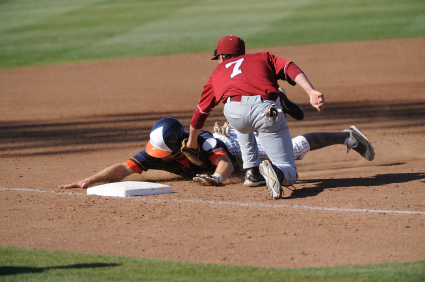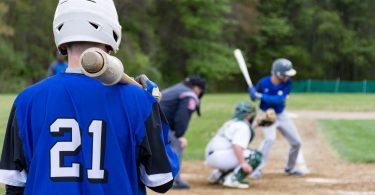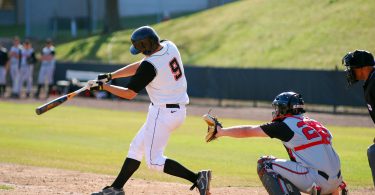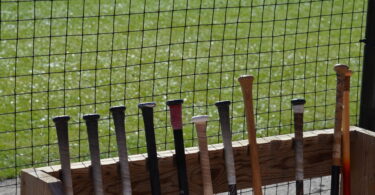Most college teams would like their third baseman to be a big hitter with above-average defensive skills. The prototypical third baseman in college is a HS shortstop with an above average bat who outgrows the position or doesn’t have the range to stick at short in college. Unlike professional baseball, however, you’ll see players with lots of different skill sets playing third.
The key to being a collegiate third baseman is being a good situational thinker. As a third baseman, you’ll be responsible for a lot of the plays put on by your team. In many programs, you’ll call the bunt plays, and be one of the main actors in them. You’ll always have huge responsibilities for first and third plays. You are going to have to be one of the captains of the infield and will have to be aware of the hitter’s situation on every pitch.
Defensive Skills
Defensively, third base requires a lot of different skills. You will need to have quick reactions for hard hit balls, not be afraid to get in front of a ball to keep bad hops in front of you, and be good at coming in on the ball and reading hops. Having above average arm strength is close to a necessity because of the types of plays and throws the position requires. At the college level, the game speeds up and your arm must be able to make the back-handed play down the line, the off balance slow roller, and the diving play in the hole with faster base runners getting down the line.
More than anything, third basemen need to be able to play below the ball and have an explosive and decisive first step. Angles and reads off the bat are key. College 3rd baseman can also have no fear of getting in front of the ball. You cannot bat an eye at the hard hit ball, which must be routine. Opposing teams will have scouting reports that include your defensive strengths and weaknesses at third base. If you don’t crash well on bunts, they’ll exploit that. At the ‘hot corner’, where balls get on you quick, you’ll also need to be able to make split second decisions without hesitation.
In college, you need to learn to compensate for your weaknesses at third base as well. Quality positioning and reading swings is a huge skill. Cheat in on players that can play the short game. Hug the lines to cut off the double on righties that are dead-pull hitters. As a third baseman, you can take away hits by being smart and moving just a step or two in any direction depending on the hitter.
Offensive Skills
As a hitter, third basemen usually stereotype as the middle of the order, RBI guys. This is far from universal, but the position allows for some bigger body players who can drive the baseball. Teams use different types of guys at third, depending on the choices they have. But the most common third baseman is going to be a run producer. If you really want to play third, a solid bat is a must because defensively the position allows for more body types and skill sets to be successful on defense. That means stiff competition for playing time and roster opportunities against other third basemen who can rake will always be there.
As with all positions at the college level, coaches will recruit players that fit their style of play and defend the style of play of their opponents. At the plate, your chances to crack the lineup will be better when you become a more well-rounded offensive threat or really excel at one thing (hit for power, hit for high average, etc.). More subtle offensive tools, like plate discipline or learning how to have a successful approach at the plate with runners in scoring position can really help. Calm under pressure is another great attribute. A run producer like most third baseman are typically expected to be cannot blink when the pressure is on.
If you want to be a third baseman at the college level, be realistic with yourself right now about your strengths and weaknesses. If you think that you’re both offensively and defensively sound, focus on situational play, or the mental game. Third base is a well-rounded position. Make yourself into a well-rounded player.







